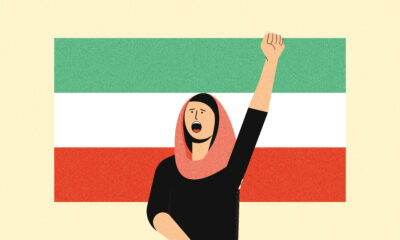Features
Adefolake Adekola: The Effects of Counterfeiting on Our Economy are Way Worse than You Think

After watching Fishbone by Anakle Films, I was left bewildered and decided it was time to throw light on this. The short film showed how life can be a circle, just like the saying, “what goes around comes around”. Not to give any spoilers, but the storyline showed the negative impact of counterfeiting on our health.
The International Anti-Counterfeiting Coalition (IACC) defines counterfeiting as “a federal and state crime, involving the manufacturing or distribution of goods under someone else’s name, and without their permission. Counterfeit goods are generally made from lower quality components, to sell a cheap imitation of similar goods produced by brands consumers know and trust“. Almost anything can be counterfeited now: medications, food, accessories, clothing, bags and shoes, toys, airplanes, car parts, even software.
Prior to now, I had not paid so much attention to counterfeiting. Not because I did not know it was wrong, but because I always made excuses for them. “The country is hard… man must survive” was one of the thoughts that ran through my mind when I saw adverts on counterfeiting. But it is beyond that now for me because it influences our economy and has an impact on our environment and, most importantly, our health as well.
The impact of counterfeiting on our health
When individuals produce counterfeit drugs at their backyards and it is not up to NAFDAC standard, it puts people at risk to suffer from numerous side effects such as:
- Bacterial infection because of inferior drugs.
- Promote antibiotic resistance.
- Alcohol poisoning.
- Complications such as respiratory paralysis etc.
- Longer duration of illness.
- Adverse reactions.
- Death.
When people are sick, they cannot be productive. When they are not productive, it often causes economic loss and a reduction in revenue generation.
The economic effects of counterfeiting
- Unemployment
- Trade deficit
- Loss of income
- Impoverishment in the long run for those at the receiving end of counterfeiting
- Increase in crime rate
- Increased exploitation of child labour
- Destroys innovation
In fiscal year 2013, the Department of Homeland Security seized counterfeit goods valued at over $1.7 billion at U.S. borders. According to WIPO, customs authorities in the European Union (EU), in 2011, seized some 115 million items (a 15 percent increase on goods seized in 2010) ranging from sunglasses, bags, and shoes, to medicine, electronic devices, batteries, refrigerants, and pesticides. Over 75 percent of these goods were destroyed.
Counterfeiting affects our environment as well. It…
- Causes pollution
- Increases emission of GHG
- Increases electronic waste
- Causes hazardous waste in landfills
- Destroys plants and soil
- Depletion of the ozone layer
Usually, I’d write the various solutions we, as a nation, can do to prevent counterfeiting – such as policy enforcement and the likes. But this time, I want to appeal to our conscience because even in developed countries, it seems counterfeiting is worse, so it is not about bad governance or poverty. The major causes are probably lack of empathy and greed. But I want us to think of the effects counterfeiting has on our health, the economy, and the environment.
Most people will assume one is better than the other – like counterfeiting designer bags is better than counterfeiting children’s drugs. But that is not true. Counterfeiting is bad both at the micro and macro levels. There is a very thin line between doing good things for the wrong reasons, and doing bad things for the right reasons. In everything we do, we should not sell our soul for money.





















